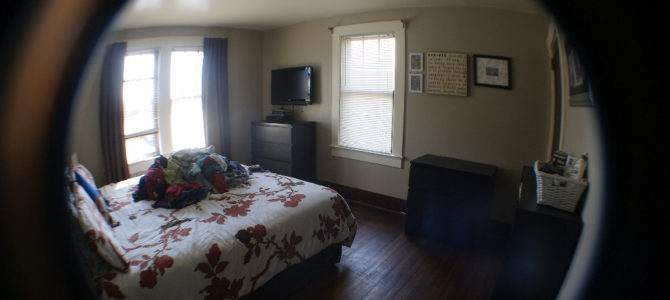
Loftium, a new Seattle-based company, promises to help with one of the biggest hurdles for renters struggling to purchase a home in high-priced cities: the down payment. But the promise comes with a catch: to receive the assistance, the new homeowner must agree to list a bedroom in his house on AirBnB for up to three years. Loftium takes 70 percent of the rental income, with the remainder going to the homeowner. The assistance ranges up to $50,000, calculated by how much rental income the unit is expected to bring.
For now, Loftium only operates in Seattle, where the median home price is $400,000, but the start-up would like to expand into other hot housing markets. It’s easy to see why millennials struggling with ever-increasing rents would find the offer attractive. Saving for a down payment is the number one obstacle cited by those struggling to purchase a home. As more and more individuals flock to high-cost cities in search of jobs and urban life, that barrier will only rise along with the housing costs.
The options for these urban enthusiasts are few. Many are saddled with student debt, so they are faced with either over-leveraging themselves through low down payments or else trying to rely on mom, dad, or grandpa to help with the purchase (then potentially owing taxes on that generous gift). Loftium, on the other hand, only requires that the owner list the property for the agreed-upon time period, with no penalty if the rental income turns out to be lower than expected. If the homeowner decides to end the agreement, the remaining theoretical rental income is owed, along with a 15 percent penalty, or Loftium can put a lien on the property.
But what does it say about modern life that Loftium could have stumbled onto a successful business model? Should these individuals be seeking to move into homes they couldn’t otherwise afford in exchange for their privacy? Typically, the American dream follows a predictable pattern: job, marriage, saving, a house, and kids. Loftium presents a decidedly strong step in another direction, exchanging the savings hurdle for only partial ownership, and one shared with an ever-changing cast of strangers.
Government Subsidizes Family Separation
This vision of the American dream is relatively new. Before the rise of suburbia, multigenerational living was quite common. As Jonathan Coppage traced recently for the Washington Post, post-war trends rapidly increased the number of nuclear family units, as housing subsidies, Medicare, and Social Security made families less dependent on each other.
Zoning restrictions also increased atomization, as the types of residences allowed in residential zones became increasingly restricted, disallowing accessory dwelling units and other forms of housing that encouraged families to stay together. Where previously family life frequently required many individuals across generations to pitch in to support each other and the household, the American dream now meant something entirely new.
Beyond multigenerational living, housing costs previously could also be covered by turning one’s home into a business. Operating as a boarding house or hosting long-term renters contributed income that provided financial stability. But zoning changed these options as well, cutting off access to ownership and valuable rental options for those living in cities.
In our brave, new, technology-enabled world, Loftium provides a new arrangement that frankly looks a lot like the old arrangements, but with one large difference: in the traditional arrangements, those supporting the household were those with whom we shared long-term bonds, most frequently in the form of extended family, but also in the form of long-term renters, where the possibility of friendship and mutual dependence is real.
With Loftium, the cast of characters is ever-changing, and while it may be exciting for some to entertain countless new individuals from a variety of backgrounds, the arrangement is mainly transactional. It’s an in-between state, one that trades the privacy of our modern American dream without gaining the benefits of our earlier household structures.
What We Sacrifice for Opportunity
Is it a bad thing to further cement our independence from our more traditional supportive arrangements in this way? While it could be seen that way, a solution like this lowers the barriers to other parts of American life we value very much. For those who choose to move to high-cost cities in search of opportunity, the obvious alternatives to an arrangement like Loftium are those mentioned above: either renting forever, and thus never building equity through ownership, or taking on high, overly leveraged mortgages.
At the same time, geographic mobility remains dreadfully low, meaning despite the rising population in these high-cost areas, many more Americans are choosing to stay put rather than move in search of opportunity. In fact, individuals are more likely to move away from productive areas into cheaper ones. Loftium provides an opportunity to move to, or stay and permanently settle in, an area where an individual’s skills can be most highly leveraged, work will be most fulfilling, and individuals can form their own communities outside the household in place of the generational arrangements of the past.
While Loftium certainly looks different than a mother-in-law suite, maybe this modern solution shows that the shift toward completely atomized households was the actual aberration. Much should be done to lower the cost of housing in many of these cities, particularly relaxing the strict zoning codes that constrict housing supply and raise prices.
If that were to happen, perhaps the demand for Loftium would disappear entirely. But the willingness to share space and rely on other inhabitants to make housing possible does show a willingness to break away from the modern version of the American dream for at least a time. It shows, at the least, that just as in the post-war period, the dream is always being redefined.









